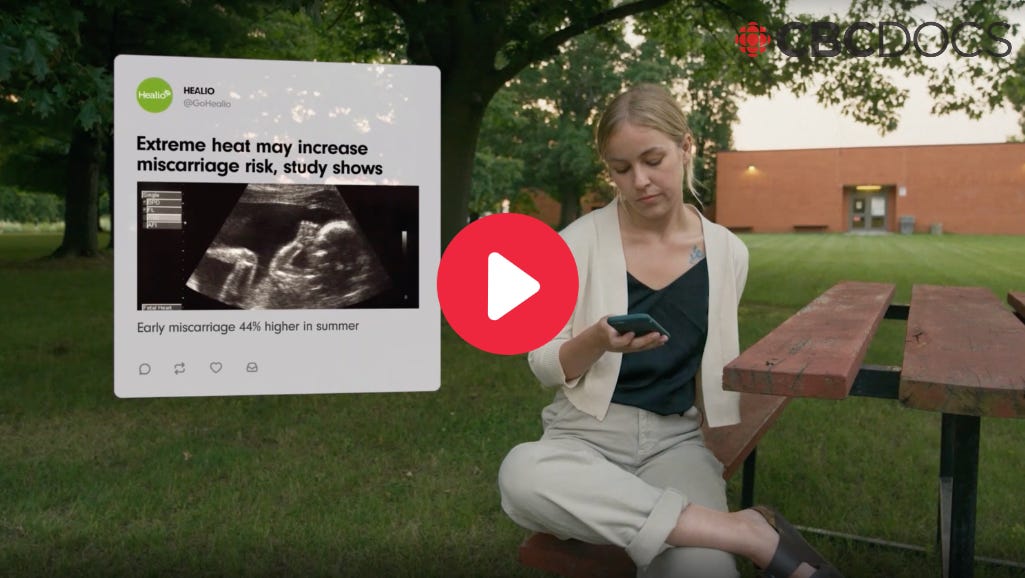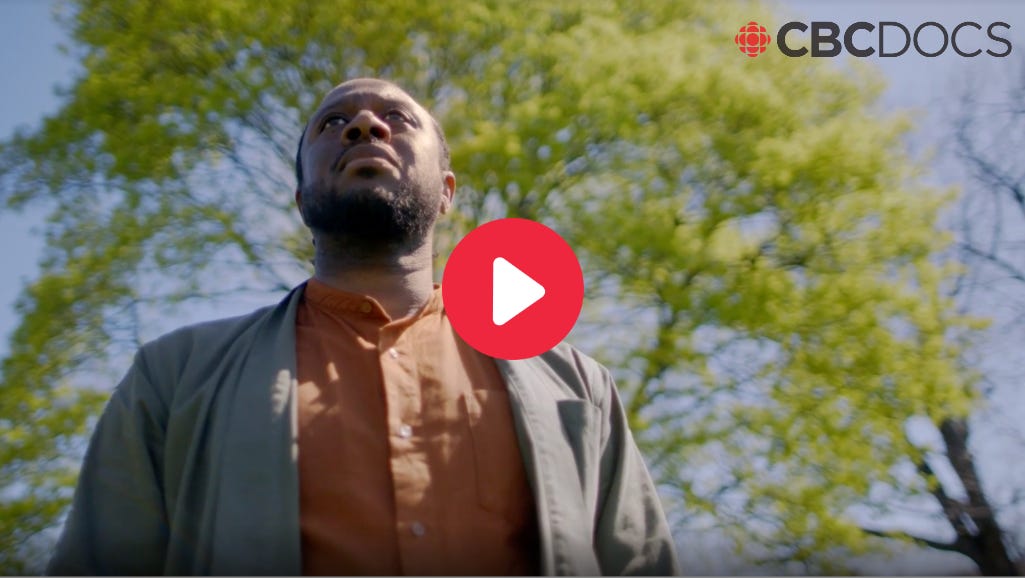Hi there!
Welcome to Gen Dread, a newsletter about how the climate crisis is making us feel, why that’s happening, and what we can do about it. Subscribe now to find community, comfort, and practical coping strategies from experts all around the world.
“Sooooo, when are you two going to start a family?”
“I bet your daughter would like a sibling!”
“You’ve been married for two years now….what are you waiting for?!”
The climate crisis is increasingly infusing our big life decisions with uncertainty, terror, and a feeling of impossibility. While everyone’s asking nonstop about your procreation plans, you might be quietly asking yourself a very different set of questions:
Should I buy a house in this town, or it will be underwater in 10 years?
Why am I working this hard to save for retirement when the future looks so scarily uncertain?
Why would I bring a baby into a world that’s becoming inhospitable to human life?
The Climate Baby Dilemma
If that’s you or someone you know, and you want to spend 45 minutes feeling seen or understanding their perspective, there’s a powerful new documentary to watch called The Climate Baby Dilemma. It follows a groundswell of young people (including youngish person me, Britt and my partner) who are questioning, agonizing, and in some cases, flat-out refusing to have kids due to their governments’ inaction on the climate crisis. If you’re in Canada, you can stream it below on CBC Gem, and we’ll update here when international viewing options become available.
The doc, directed by Canadian filmmaker Victoria Lean, does a fantastic job of exploring the paralyzing ambivalence many young people are feeling. In this week’s edition of Gen Dread, we’re picking up where the doc leaves off: if you’re unsure or against bringing children into this world, how do you handle everybody’s unsolicited opinions, judgment, and disappointment?
Here are five strategies that might help
As a culture, we still don’t really know what to do with people of all genders – but women most especially – who aren’t raring to dive into the magical lotus-filled lake of motherhood with arms wide open (yikes, bad way to dive). Such women get continually poked and prodded, pitied, labeled “selfish”, misunderstood. Society can generate empathy for women who can’t have children for physical reasons, but when the reasons have to do with their mental state (which is just as valid of a roadblock as an ovarian disorder) that empathy often evaporates. A woman exercising sovereignty over her body and questioning societal norms still terrifies and confuses a lot of people from governments to grandparents. Here are five things that might help you stand firm in your decision or indecision, and coexist with people who feel the need to question it:
Hand the anxiety back to its owner
When your mother-in-law asks when you’re going to give her grandkids, it’s easy to think, “I’m failing her and I’m failing at life!!!” But you don’t have to volunteer to carry anxiety and insecurity that actually belong to someone else. The question is a reflection of the asker’s state of being, not yours. It indicates that the asker has some internal work and interrogation to do, not you. Here are some other ways to hear that question that rightfully centre her instead of you: “my mother-in-law seems worried that this season of her life will lack purpose without grandkids” or “my mother-in-law seems to have a narrow and prescribed concept of how a woman’s life should look”. If someone asks why you don’t have kids yet, visualize them handing you a glowing ball of their own anxieties. Take a breath, then visualize yourself handing it right back to them where it belongs.
Create boundaries…and communicate them
Whether it’s the first or fiftieth time your uncle’s prodded you about babies, you can lay down some terms of engagement that help protect your time and your heart: “I’m not currently feeling open to discussing this topic with you”. “I’m not looking for advice right now, but thanks!” “This question is pretty personal and I’d appreciate some space and privacy around it.”
There are tons of reasons why it’s just inappropriate, full-stop, to ask about someone’s reproductive plans. So many women smile politely and endure these questions while quietly doing fertility treatment, trying to survive financial distress, or secretly working out how to leave an abusive relationship. Putting up healthy boundaries around this topic helps normalize the fact that women don’t actually owe anyone an explanation of why they don’t have or want kids.
Find your people
If every space you inhabit in a typical day is filled with citizens of the status quo, you’ll feel continually judged and constantly alone. As with anything, once you find like-minded folks and build community around your shared identity as childfree or child-ambivalent people, climate activists, or all of these, it might feel easier to shoulder the comments and questions everywhere else.
Humour can diffuse tension
Having kids is a heated, emotional topic; it usually (and understandably!) gets treated with gravity. If you think the relationship can hold it, bringing humour into your response can sometimes help the person realize they’ve overstepped. “I don’t know when I’ll be having kids, co-worker! What’s the exact dollar amount of your savings account?”
Put self-care strategies in place
You can’t control what people think, ask, or pry about, but you can control how you take care of your heart once you step into the private oasis of your home. You can start a Rage Journal where you scribble all your unfiltered responses to intrusive people. You can find movement and creative outlets that make you feel confident, joyful, and calm. When you get intentional about nurturing your relationship with yourself, it’s a celebration of your own story. And that’s not a story you have to justify to anyone else.
Readers in Canada can catchThe Climate Baby Dilemma on CBC Gem here:
Making Waves
For a growing number of young people, the climate crisis is affecting decisions about whether or not to have kids. One young activist, Payton Mitchell, describes her reasons in this CBC Docs video below:
Imara Ajani Rolston is the director of the Community Climate Resilience Lab in Toronto, and a father of three. Watch him explaining why we need to be deeply involved in changing our systems to protect our children in this CBC Docs video below:
Sarain Fox is an Anishinaabe artist, activist, mother, and one of the people you meet in The Climate Baby Dilemma. She believes that having children in the midst of a climate crisis is the ultimate expression of hope, defiance, and revolution. Read her explanation, in her own words, in this CBC article right here.
Severn Cullis Suzuki is a Canadian environmental activist, writer, speaker, and mother, and another voice featured in The Climate Baby Dilemma. Read about why she’s “all in” when it comes to raising her kids in the climate crisis, in this CBC article by Graham Duggan here.
And be sure to check out Britt Wray’s personal essay for CBC, “Deciding to have a baby amid the climate crisis: whatever you're feeling, you're not alone”
As always, you can share your thoughts with me and reach the Gen Dread community by commenting on this article or replying to this email. You can also follow me on Twitter and Instagram. I am not able to respond to every message, but I read them all and reply when I can.
‘Till next time!








Share this post